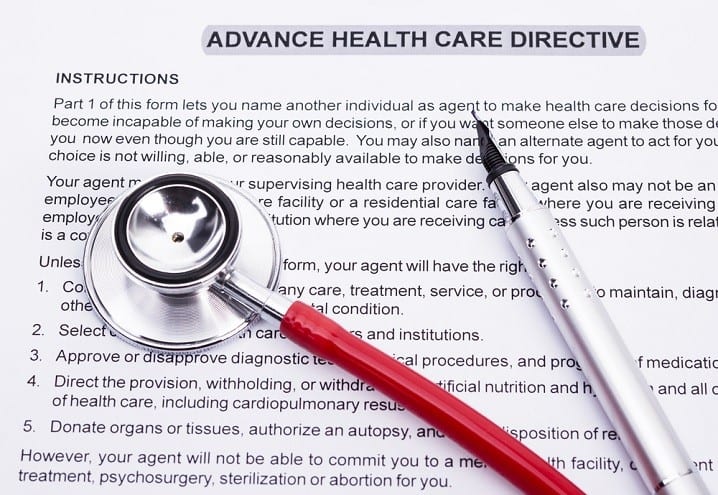An Important Supplement to a Living Will

A document that is an essential element of every estate plan is one that gives directions for health care when you are unable to make decisions. Many people say they want to die with dignity and without running up a lot of costs for futile health care, sometimes called “heroic efforts.” But your wishes in this area won’t be fulfilled unless you have the right document completed well before it is needed.
The most popular document is the Living Will. Most states now have statutes specifically validating living wills and even providing sample text for a valid living will. A living will basically states the general circumstances under which you don’t want additional medical care beyond comfort and pain reduction.
Living wills usually state that treatment is not to be provided if the individual is in a “persistent vegetative state” and that the patient’s life is not to be prolonged by artificial means. A living will also might say the individual is not to be resuscitated in case of heart failure or that only pain medication is to be provided when the individual is considered terminal.
But there are a number of shortcomings to living wills.
The language of a living will is vague and general. It doesn’t give clear instructions that can be used in a lot of specific situations, and it doesn’t provide direction for cases that are between the extremes. That means your wishes must be interpreted, and they might not be interpreted the way you intended.
Even worse, several studies have found that living wills often aren’t followed. The doctors might not be aware of the document’s existence when it is time to make decisions, especially in emergency situations. Only about one third of such documents get onto a patient’s chart. Or the doctors conclude that the short general statements in the living will it don’t address the specific situation. If the living will was executed shortly before the illness, a doctor might conclude that the patient was not in the right frame of mind to make such a decision and won’t follow the document.
A better document is known as an advance directive. This gives more detailed instructions about the type of medical care you do and don’t want in specific situations. This longer document will define terms such as “persistent vegetative state” or “terminal disease.” It can provide, for example, that treatment other than pain reduction will be withheld if three doctors certify that you are in a certain physical condition. The advance directive also can address your specific medical conditions, such as listing allergies and chronic problems. You need to work closely with your doctor and attorney to draft this customized document.
But the best document to use probably is the health care power of attorney.
Rather than trying to set guidelines to define your wishes in hypothetical situations, a health care power of attorney appoints a person or persons to make medical decisions when you cannot.
First, the power of attorney defines the situations when you cannot make decisions. A common provision states that your personal physician must certify in writing that you are unable to make health care decisions. Then, the document provides who will make the decisions.
You generally pick a family member or friend to make the decisions. This would be someone with whom you have discussed these issues and who is willing to make the necessary decisions consistent with your wishes. You might select more than one person so that there is a group decision. You also need to select alternative decisionmakers in case the primary person is not available when a decision needs to be made.
Whichever document is selected, once it is prepared be sure to distribute copies. Each of your doctors should have a copy, as should your attorney. Close family and friends also should have copies. If you know of any other medical facility that has a file on you, a copy should be set there for insertion in your file.
You need help and guidance to set up a proper health care document. It is best to work with an esate planning attorney. Your local chapter of the American Association of Retired Persons can provide information, including a work sheet developed jointly with the American Medical Association and American Bar Association. Local medical and bar societies and your state’s aging agency usually are helpful.
No matter what your decisions are, the most important step is to talk with your primary physician about these issues. Your doctor needs to know what your thinking and wishes are. You also need to know your doctor’s views. For either moral or legal liability reasons, some doctors won’t withheld care in many situations. Talking with your physician about all these issues is the best way of ensuring that your wishes are carried out, regardless of which document you use.
![]()





